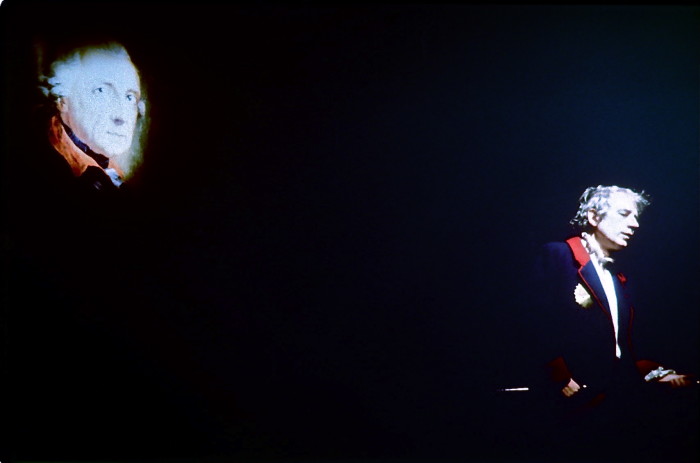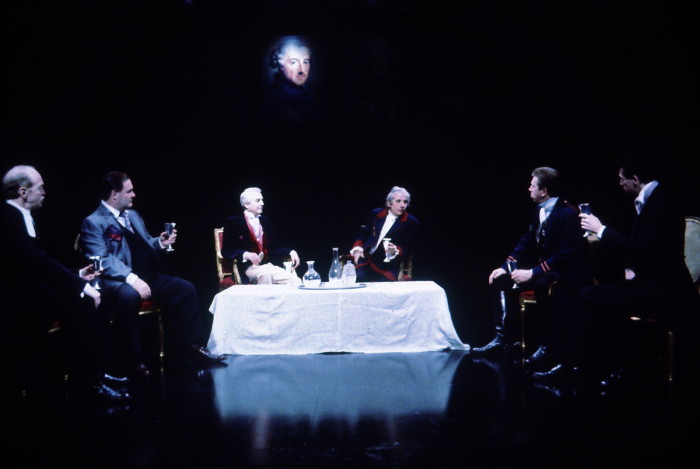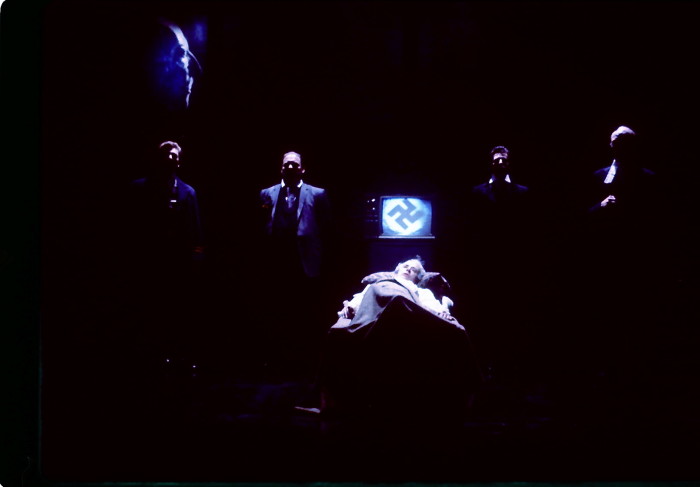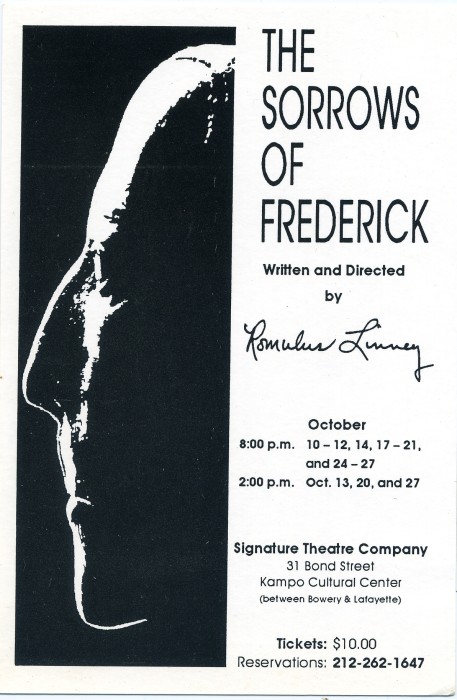

Excerpts from the reviews
Full reviews are below
“Austin Pendleton gives a brilliant performance that ranges over the seven ages of the man with the muscularity of maturity. Ripeness is all. And dryness. At times, a sort of dry fury. No contradiction there if you see the show . . . “ – Jerry Tallmer, The New York Post
“An introspective look at a most contradictory monarch . . . In revival, the play retains it’s complexities and it’s flaws . . . Mr. Linney seems to move the work further into black comedy . . . “ – Mel Gussow, The New York Times
“The writing is sharp with humor and insight . . . Pendleton brings a generous amount of humor to the role, but he also conveys quite convincingly the inner torment of the man . . .” – Michael Sander, Drama-Logue
Publicity
Full reviews
New York Times, Mel Gussow – Frederick the Great and Not So Great. By devoting a full year to the plays of Romulus Linney, the Signature Theater Company is performing a distinct service for theatergoers as well as for the playwright. The wide-angle perspective should lead to a greater awareness of the depth and diversity of Mr. Linney’s work. Late last season, audiences were offered a sampler — revivals of two one-acts. Currently the company is revisiting the author’s first play, “The Sorrows of Frederick,” with Austin Pendleton returning to a role he has played several times in the past. Though it was written in the mid-1960’s and presented in England, the play did not have its New York premiere until 1976. Today, as in that earlier rudimentary production, this is an introspective look at a most contradictory monarch, Frederick the Great of Prussia, the warlike philosopher-king. In revival, the play retains its complexity and its flaws. As an ambitious attempt to reveal the humanity shrouded by history, it offers a psychological portrait of a totally obsessive personality. In that sense and others, it can be compared to Marlowe’s “Edward II.” In both cases, a king is driven by his mania to become his own victim. As the play sprawls through Frederick’s disordered mind and Prussia in the 18th century, it encounters obstacles, including a slow flashback through the character’s early life. Some of the structural problems might be overcome if the play had the fully realized production it demands. Once again, an epic play is approached as a chamber drama, in this case under the direction of the playwright. The spareness of the staging adds to the audience’s quandary, as it tries to find an equilibrium in a highly volatile world. Mr. Pendleton is most persuasive in conveying the comic side of the King’s madness; he has more difficulty with the tragic dimensions. In this production, Mr. Linney seems to move the work further into black comedy, as the King savagely imposes his anarchic will while acting out a self-assigned role as tyrannical humanist. Bullied by his father, the artistically inclined Frederick sets out to prove himself, suffering from delusions as he strives toward unattainable greatness. Mr. Pendleton reaches his apogee when he defies his dead father from the pinnacle of his newly acquired power. With insolence, he asks, “What do you think of the little fop that plays the flute?” As before, the people who surround him are less individual than prototypical, with the definite exception of Voltaire (Garrison Phillips), a favored visitor in the Prussian court. Voltaire would seem to be the one man unafraid to stand up to the King. Their dialogue is one of the strongest elements in the play. In this revised version of the text, a brief epilogue wrenches the play forward into the 20th century, offering a glimpse of the rise of Nazism and the suggestion that it was an outgrowth of Frederick’s reign. This observation might have been better left to the audience’s imagination. What that coda does indicate is the growth of the playwright’s writing talent, from “The Sorrows of Frederick” to “2,” his most recent drama, presented at the Actors Theater of Louisville (Ky.) and still unproduced in New York. The new play is an excoriating study of Hermann Goring and the Nuremberg war-crime trials. In his second dramatic exploration of the history of Germany, the playwright has honed his theatrical and political skills to the sharpest cutting edge. 10.17.91
[previous] [next]

